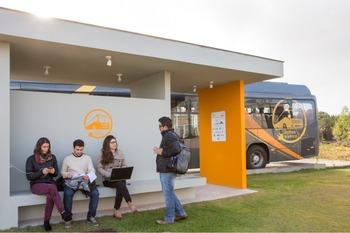Context
Following the United Nations (UN) Paris Climate Conference (COP21), Brazil announced its intention to reduce its greenhouse gas emissions by 43 per cent compared to 2005 levels by 2030. In addition to increased use of renewable energy, the country is striving to improve its energy efficiency by 10 per cent. Currently, the transportation sector accounts for more than half of Brazil’s consumption of fossil fuels and for 46 per cent of greenhouse gas emissions by the energy sector. The Brazilian Energy Research Company (EPE) forecasts that the country’s car fleet will triple in size by 2050, of which 10 per cent are expected to be battery-powered electric vehicles. The growth of battery-powered vehicles and plug-in hybrids in the Brazilian market, however, has not been living up to its potential. So far, only six battery-powered models are offered, which, as in other markets, are comparatively more expensive than models with internal combustion engines. The number of new hybrid cars, plug-in hybrid, and battery electric licensing remains low at around 4,000 units in 2018 and 2019 (a 0.2 per cent market share). In public transport so far, only a few electric buses have been tested in pilot projects. Many cities are interested in the introduction of electric buses and are preparing to integrate this new technology, but there are still no continuous operating experiences and no specific financial support mechanisms.
Objective
The conditions to consolidate electrical mobility in Brazil have been strengthened.


